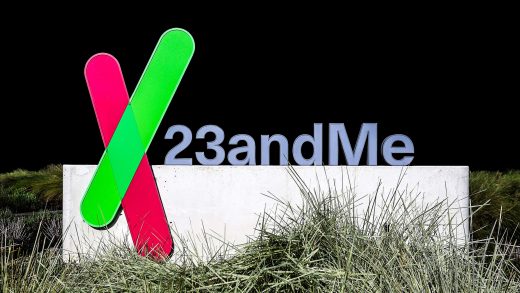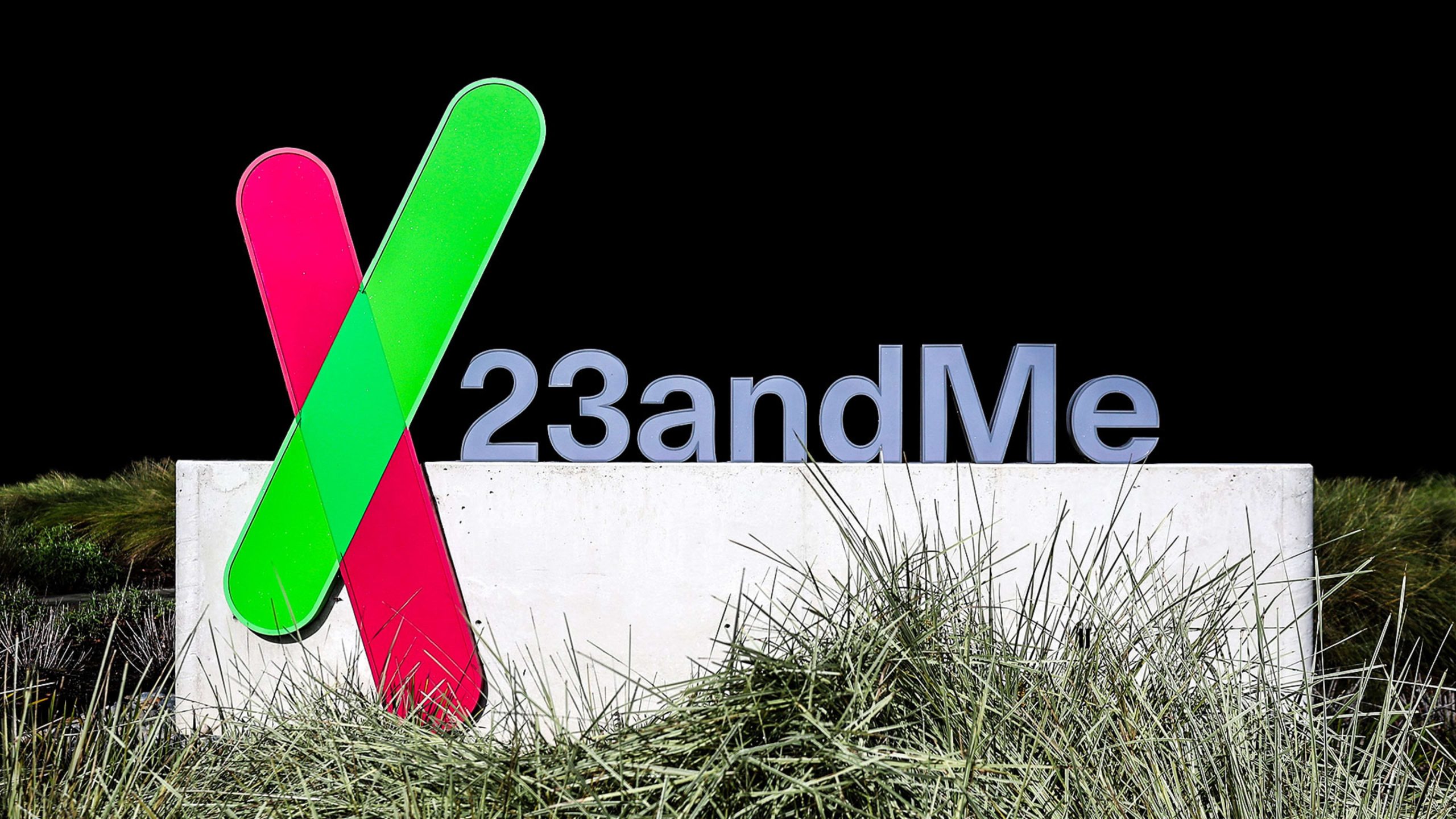23andMe wants to go private. It’s the latest in a line of failed SPACs
23andMe wants to go private. It’s the latest in a line of failed SPACs
Like BuzzFeed and Virgin Galactic, the DNA-testing powerhouse is another company with a buzzy SPAC debut whose stock fell to under $1 in recent weeks.
BY Clint Rainey
Like a number of companies that went public during the pandemic, 23andMe has for months been trying to manage a terrible case of SPAC-itis, an inflammation that causes plunging stock values due to the business being, as one analyst put it, not “ready for prime time.”
23andMe, the DNA-testing powerhouse that once threw celebrity “spit parties,” went public in 2021 by merging with a special purpose acquisition company (SPAC) funded by billionaire Richard Branson. Briefly, it attained a $6 billion valuation, but as 23andMe struggled to turn a profit and regain trust after a massive data breach, enthusiasm cooled. Now, it’s worth an amount much closer to $0 (51 cents a share, presently).
It’s in this context that 23andMe told investors today that CEO Anne Wojcicki—who has been with the company since cofounding it in 2006—has unveiled plans to acquire all outstanding shares in order to take the company private again. Wojcicki’s ownership stake is roughly 20%, and 23andMe’s market cap currently stands at about $240 million.
The SPAC bubble was declared to have burst months ago, after the corporate fire sales and Chapter 11s began piling up. Reports at the end of last year chronicled how 2023 was a veritable horror show (at least 21 bankruptcies and some $46 billion of investor losses) for companies that chose not to satisfy the standard initial-public-offering process, instead opting to enter the public markets by glomming onto blank-check companies.
The year ended, symbolically enough, with WeWork—the SPAC darling that turned into a money-losing office-leasing enterprise in the era of remote work—declaring bankruptcy. (WeWork’s situation has since gone more upside-down: Founder Adam Neumann is attempting to buy back his old company, once worth $50 billion, reportedly for around $600 million, so it can become part of his mysterious residential real estate startup, Flow.)
However, in recent weeks, Wall Street has seen a new wave of panicky SPAC tears of regret materializing. Donald Trump’s Trump Media & Technology Group, the outfit that owns Truth Social, debuted in late March after completing the de-SPAC process with Tampa Bay-based Digital World Acquisition Corporation. It’s seen a rough three weeks, shedding two-thirds of its value so far, and Trump boosters who hoped to see DJT go to the moon probably aren’t in a happy place right now.
Meanwhile, in a separate filing last week, BuzzFeed said it will ask shareholders to approve a reverse stock split to goose its own stock above $1 per share—the crucial threshold below which markets such as Nasdaq and the New York Stock Exchange will de-list your company. BuzzFeed went public in 2021 via a disappointing SPAC merger. Since then, shares have never cracked the $10 mark, and today they’re trading at 39 cents apiece.
Also last week, shares of Virgin Galactic, Richard Branson’s space-tourism venture that was once a peer of Elon Musk’s SpaceX and Jeff Bezos’s Blue Origin, plummeted for the first time into sub-$1 territory themselves, causing headlines like “Richard Branson’s Space Empire Is a Waning Dream.” The drop came five years after it went public through a SPAC merger and rode the momentum to trade at a record high of $55.91 by 2021. According to reports, Branson has been slowly triaging; he’s already dumped more than $1 billion of his founding stake. That doesn’t look good for the odds of him bailing the company out, and a money manager might advise him that he hasn’t seen particularly solid returns so far on businesses that required a shell company to go public.
But in the SEC filing, Wojcicki tells 23andMe and the company’s investors that she is dead-set on hitting that SPAC eject button. She added that she wants to maintain control of the company, and that she’s “not willing to support any alternative transaction.”
It’s unclear what her business plan for a 23andMe taken private again would be. One problem the brand has encountered is that, even back when spit tests were cool, customers didn’t need to do it more than once. And while the company has found ways to offer ancillary health services, not very many customers need those.
Recently, Wojcicki pivoted to trying to morph 23andMe into a broader-based healthcare company capable of doing everything from developing drugs to providing telehealth. One new service, Total Health, lumps in blood tests plus appointments with 23andMe’s team of own healthcare providers, but costs more than $1,000.
23andMe said it has formed a special committee to carefully evaluate Wojcicki’s proposal “in light of other available strategic alternatives”—which it noted do include “continuing to operate as a publicly traded company.” The company added it has no plans to comment in the interim, beyond reiterating it is “committed to acting in the best interests of 23andMe and its shareholders.”
ABOUT THE AUTHOR
(17)



